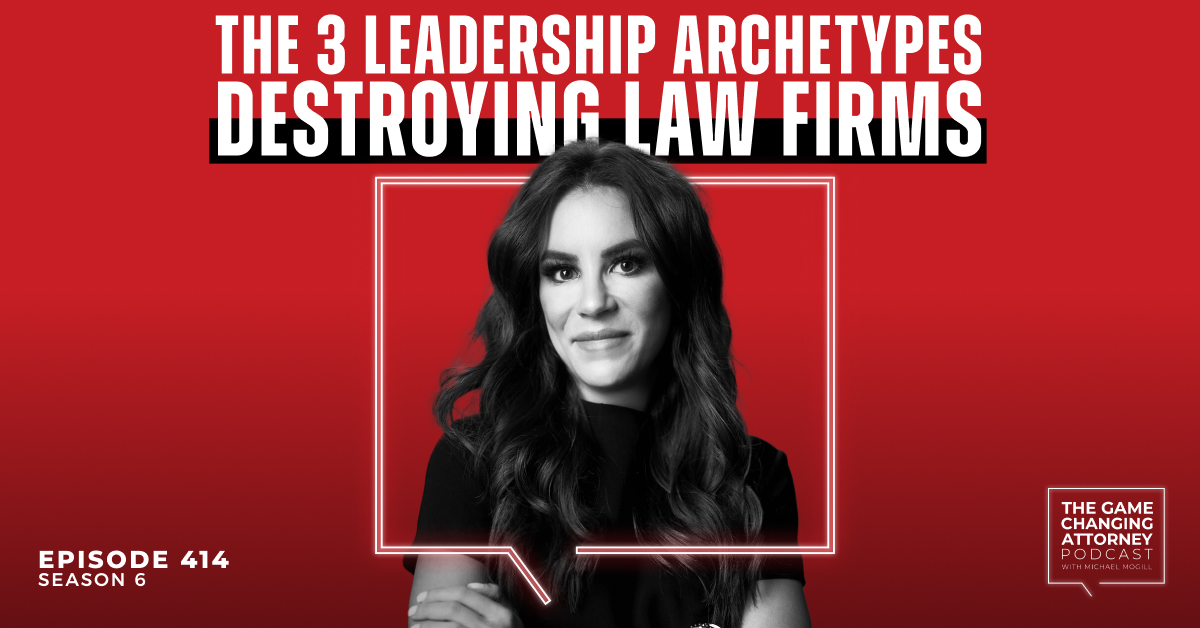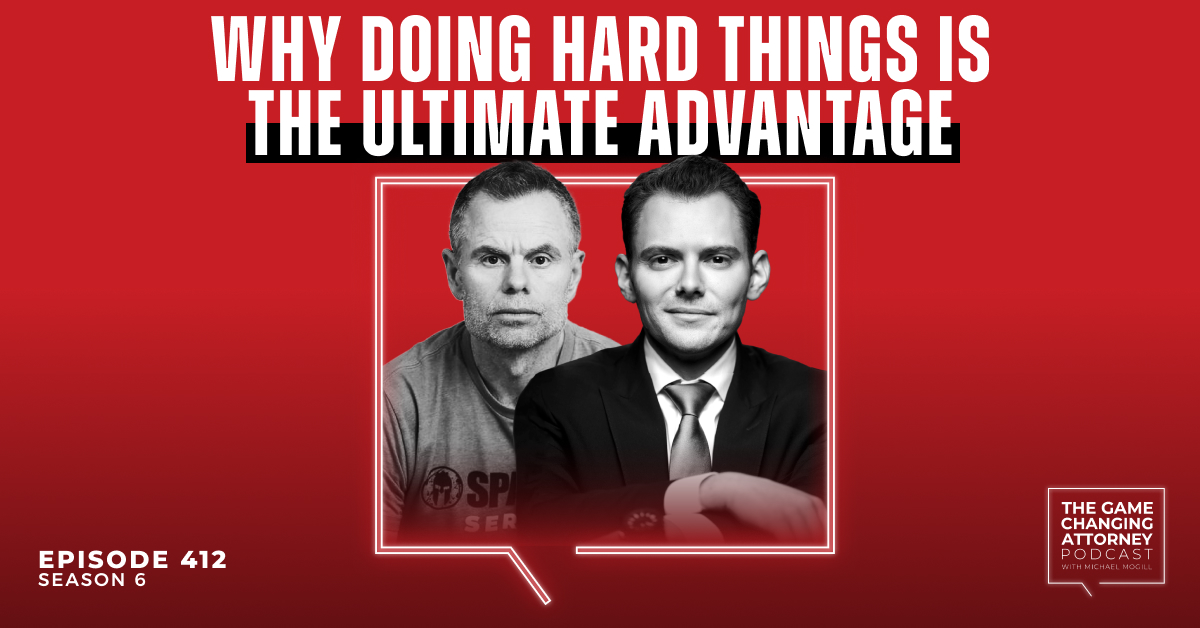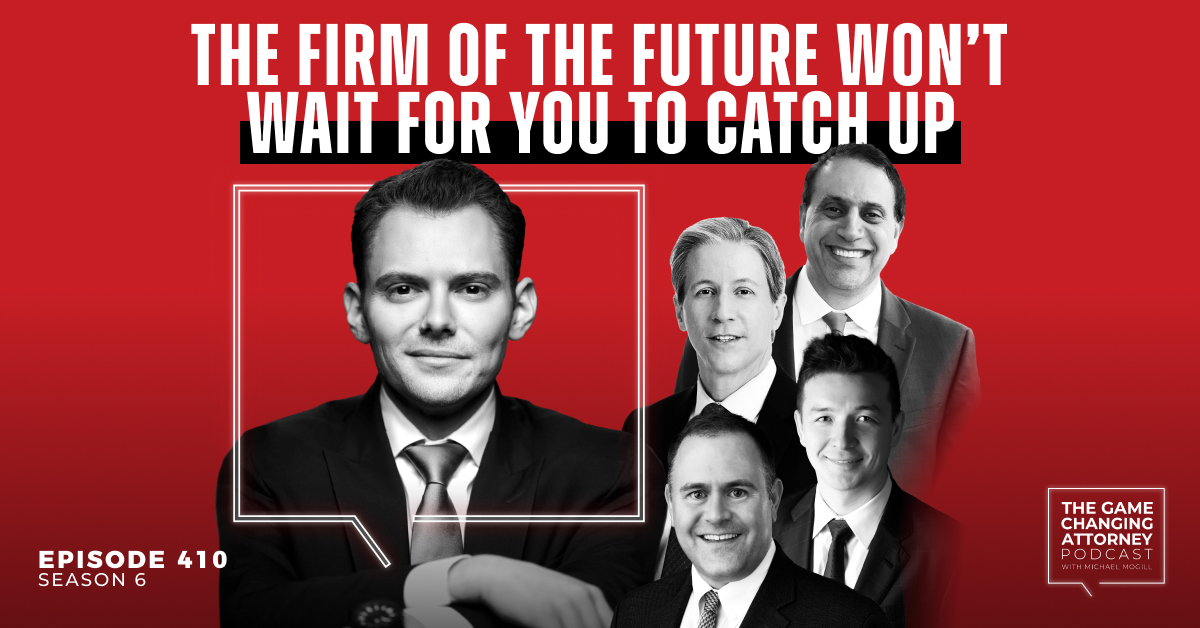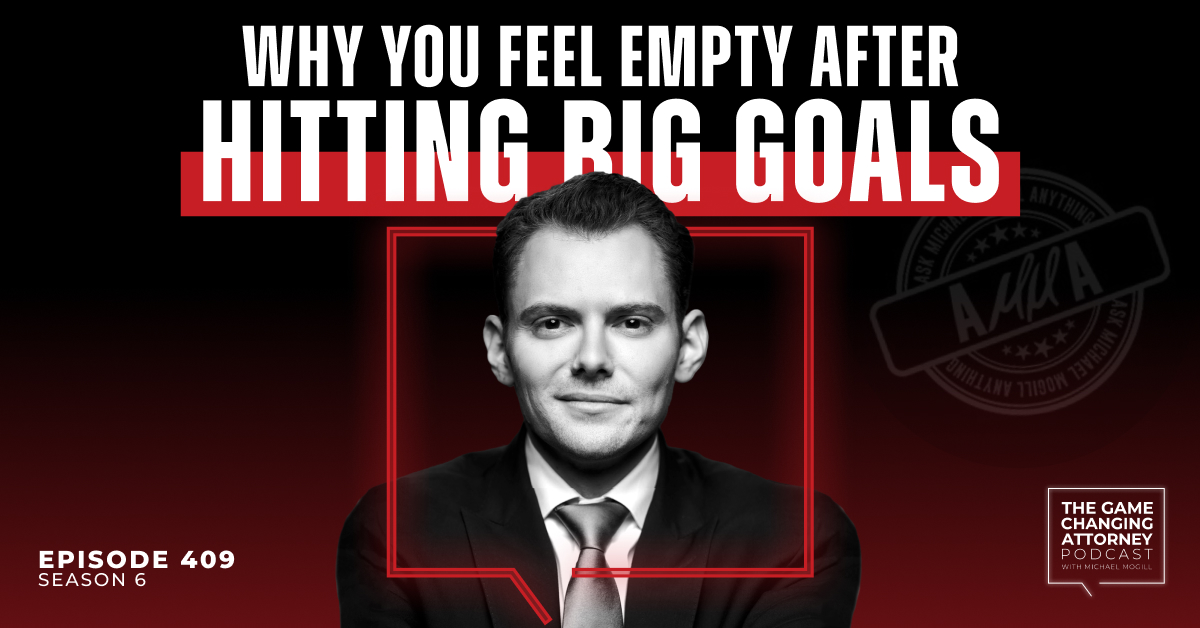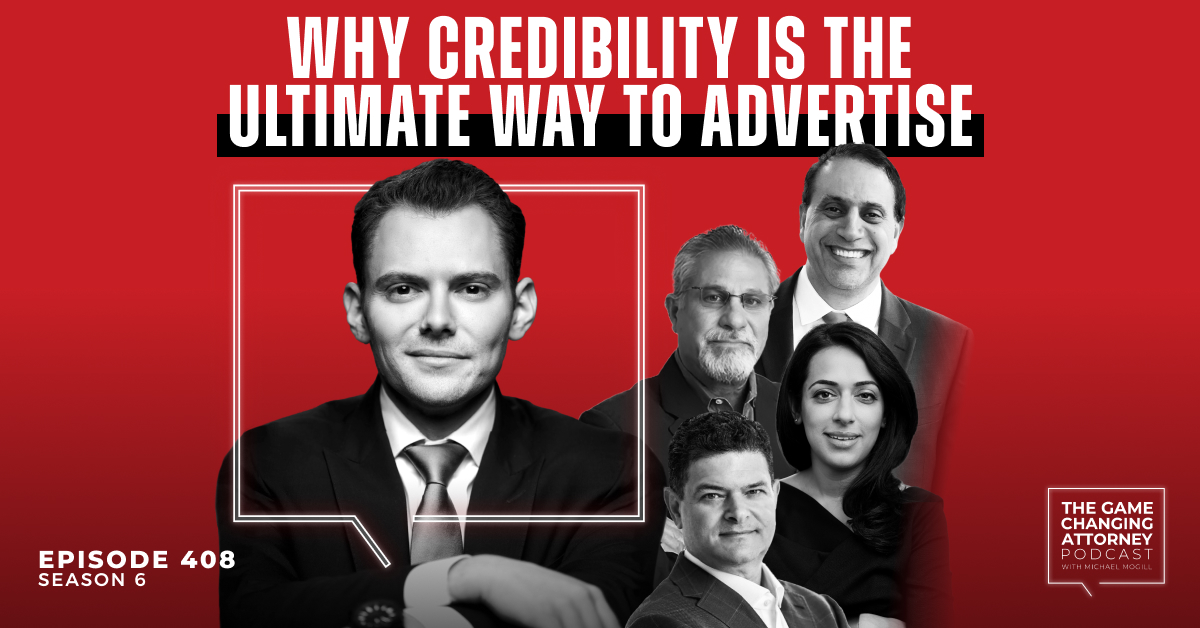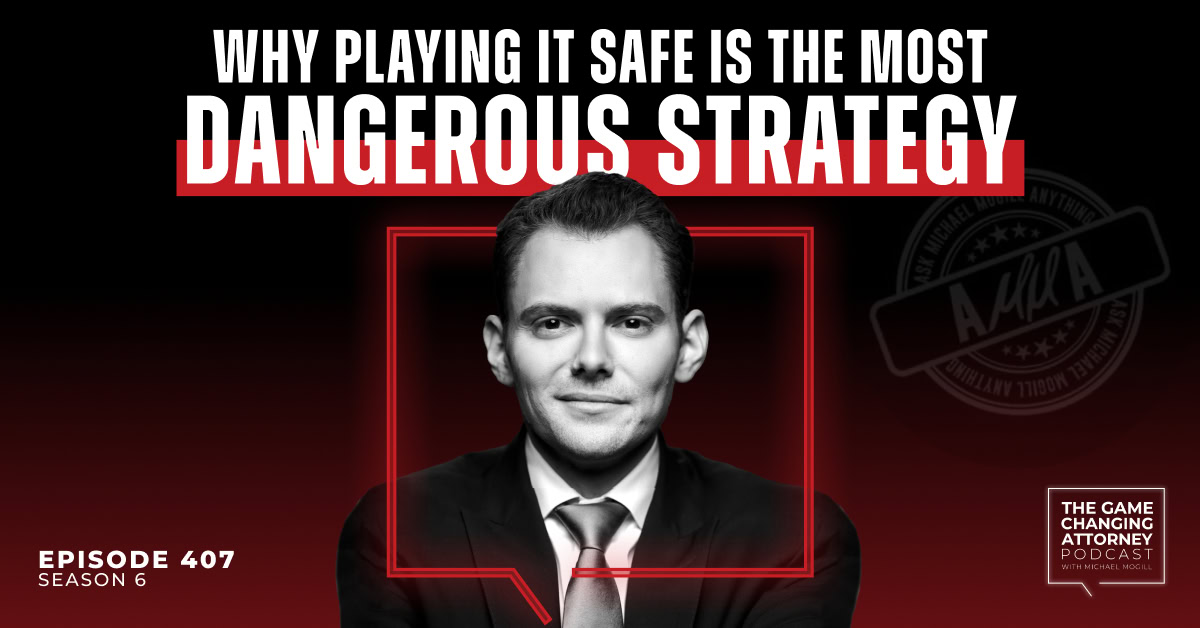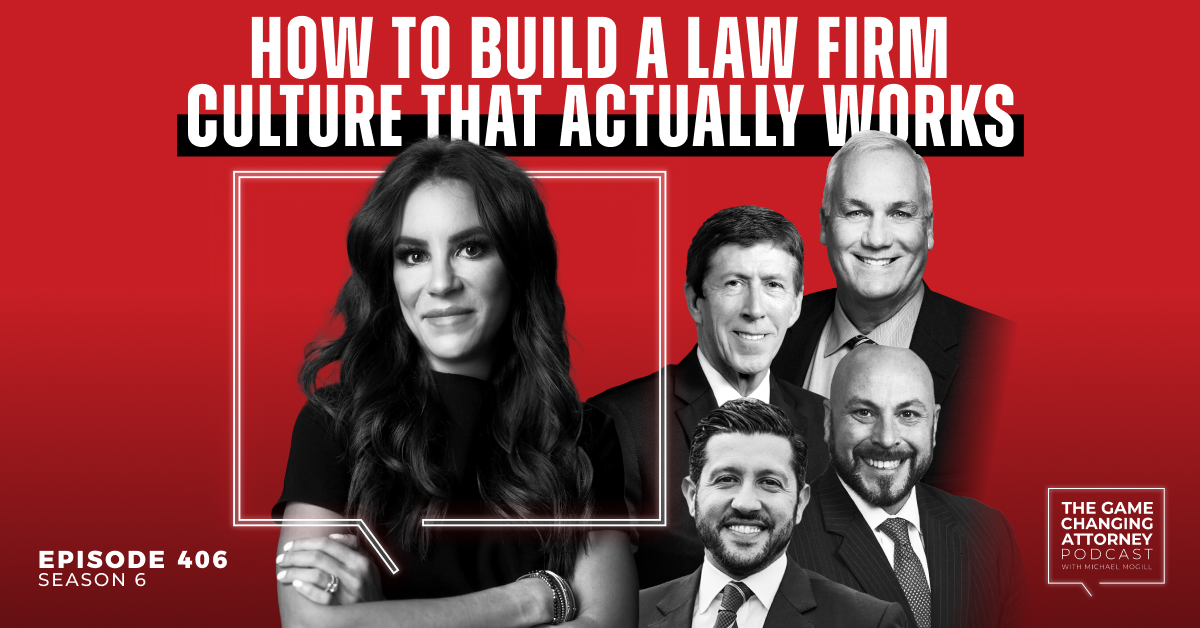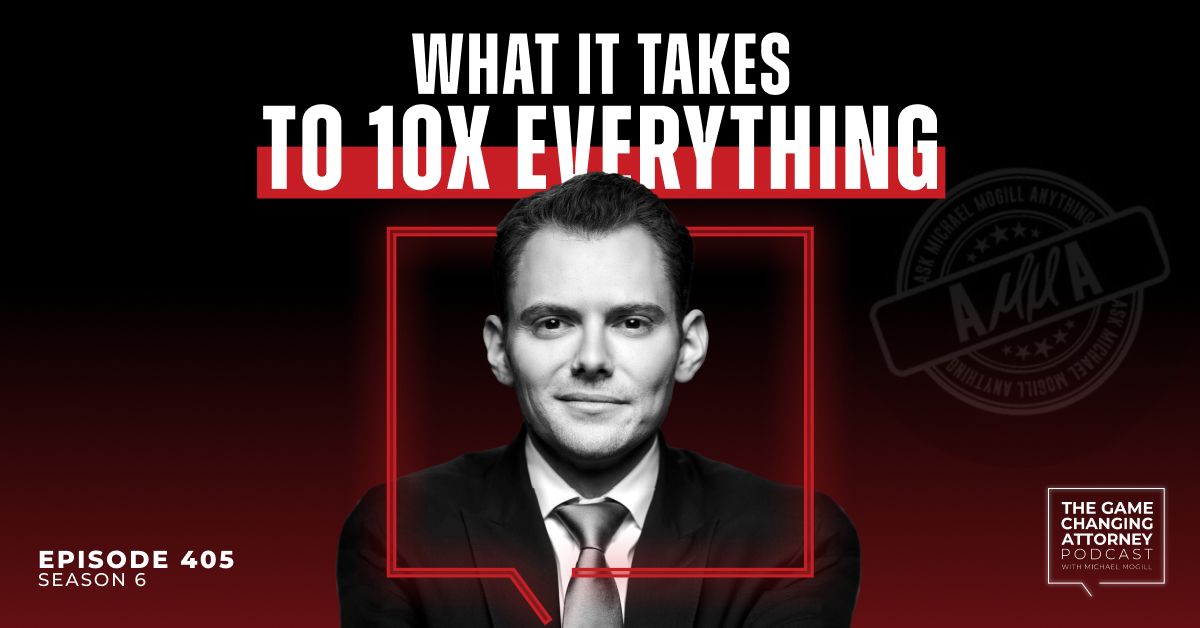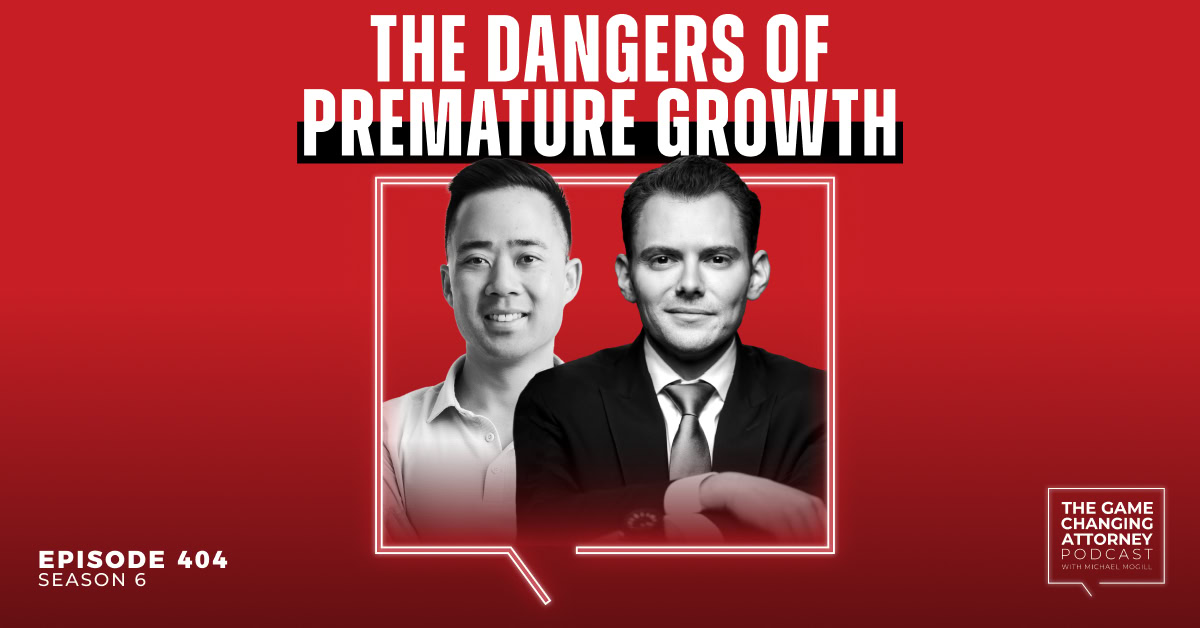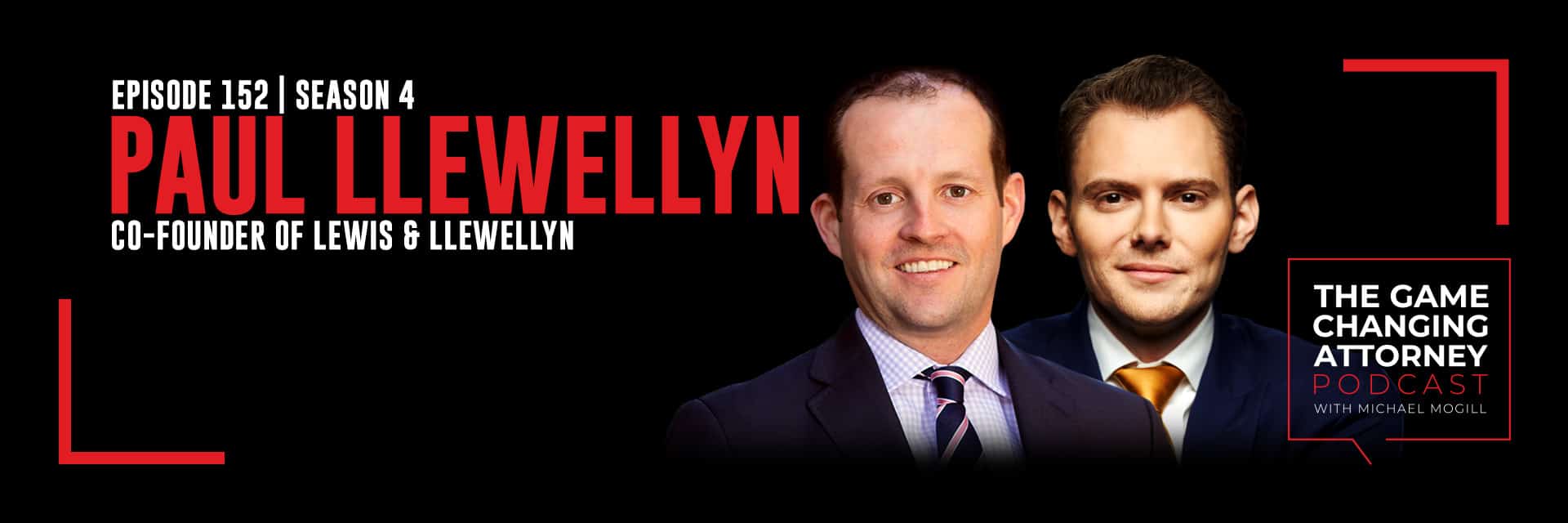
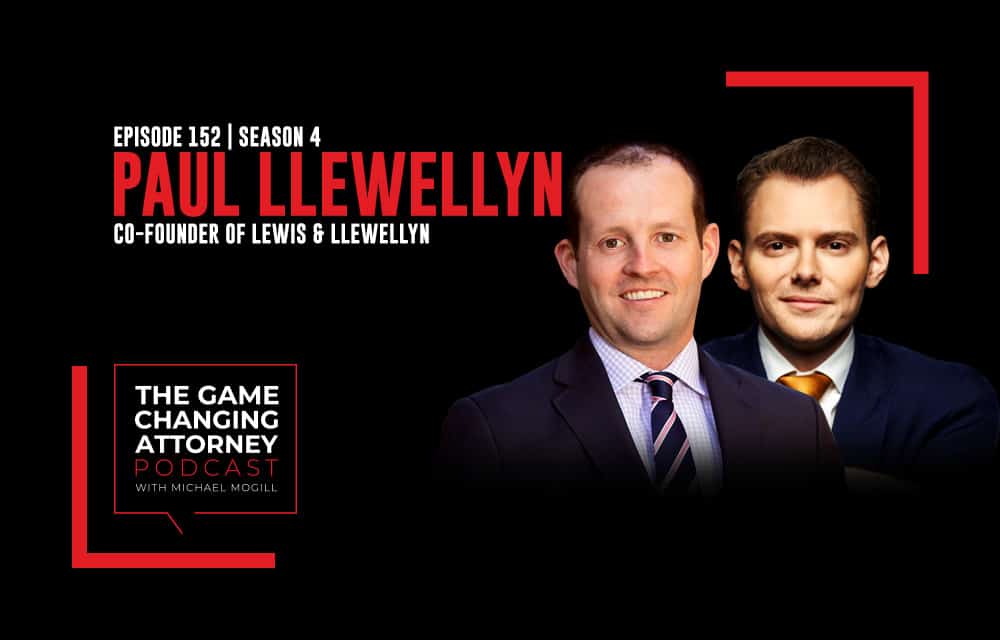
Episode 152 — Paul Llewellyn — Reimagine the Practice of Law
Some may think that the practice of law is antiquated — and they wouldn’t be wrong.
The truth is that so many lawyers are taught to do what those before them have done…instead of pushing past the status quo and changing the narrative. That’s why the legal profession has been slower to change than other industries.
Paul Llewellyn has made it his mission to reimagine the practice of law as a whole and create a whole new way of thinking.
On this episode of The Game Changing Attorney Podcast, he and Michael sit down to discuss:
- Why the legal industry has been so hesitant to change
- The differences in practicing law in England vs. the United States
- Why great attorneys are made and not born
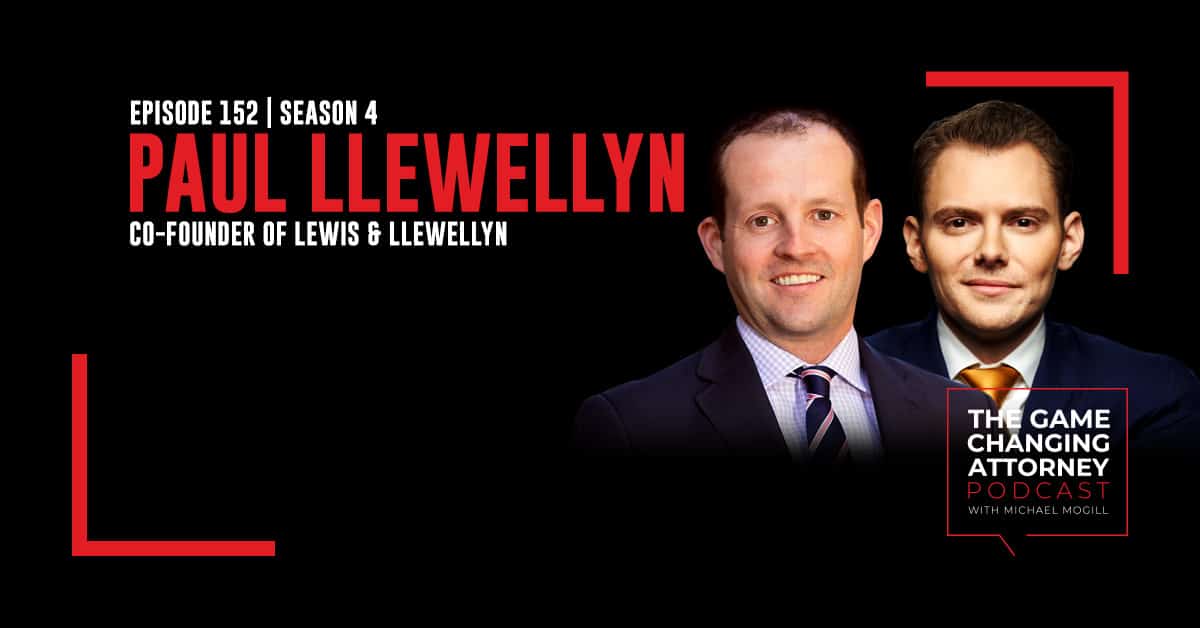
Listen & Subscribe
Show Notes:
Law school does a terrible job teaching business. “How do you deal with difficult clients? How do you get business? First and foremost, lawyers are a business commodity — but we aren’t taught how to operate like we’re a business. We’re not taught any sort of business tactics in school, and that makes lawyers unprepared in a lot of ways. I wanted anyone in law, anyone considering going into law, or just the public at large to realize the problems that lawyers face every day and try to come up with solutions to fix them. ‘It’s just the way it is’ shouldn’t be an acceptable answer. I don’t think I have all the answers, but I want to start the conversation.”
The differences between big and small firms. “Working with big law firms isn’t the typical experience people have with lawyers, and that’s because they primarily represent big litigation, Fortune 500 companies, and the stakes are in the hundreds of thousands of dollars range. When you’re working with smaller law firms, there’s usually much less money involved, and individuals are typically represented as opposed to big companies. So while there are certainly differences, the fundamentals are the same: How do we treat our clients? What is our firm culture like? In my view, there’s little difference to how we should approach both kinds of firms.”
Justice is expensive. “If you want justice, you’re going to have to pay a lot of money in order to get it. I believe that if we want to remedy that, one way to do it is to have more judges. Though this may not be a popular option, it’s so important to society. The second way is to have judges sanction more frivolous cases. Some lawyers bring forth cases that probably don’t need to be there in the first place in hopes of getting a quick sum, and when that happens, judges need to lay down the line and let them know that they’re not going to stand for that.”
Practicing law in England. “The practice of law is much different in England than it is in the United States. For instance, you have to refer to your opponent as ‘my learned friend.’ When you walk into a courtroom, you must bow to the judge, and you have to do the same when you leave the courtroom. Though it might seem silly to some, I believe that civility is cherished more in the courtroom in England than the US.”
Love what you do. “I’m so fortunate at my firm because my partners and I truly would do anything for each other, and it really does feel like we’re a true partnership. I believe that clients also see that and pick up on that feeling as well, and the more we enjoy what we do, the more our clients will trust us and want to work with us. It’s a win-win.”
What does being a game changer mean to you? “Being a game changer means not accepting the status quo. Just because something has been done a certain way for a long time doesn’t mean it has to continue on like that. Forging your own path forward, taking risks, and having fun doing it is what true game changers do.”
RESOURCES & REFERENCES
Unshackled: Reimagining the Practice of Law by Paul Llewellyn
L.A. Law
Fortune 500
Joseph Jamail, Jr.
John Ruhlin
Amazon
Zappos
Mandarin Oriental
Apple
Nike
Connect with Michael
- Text directly at 404-531-7691

